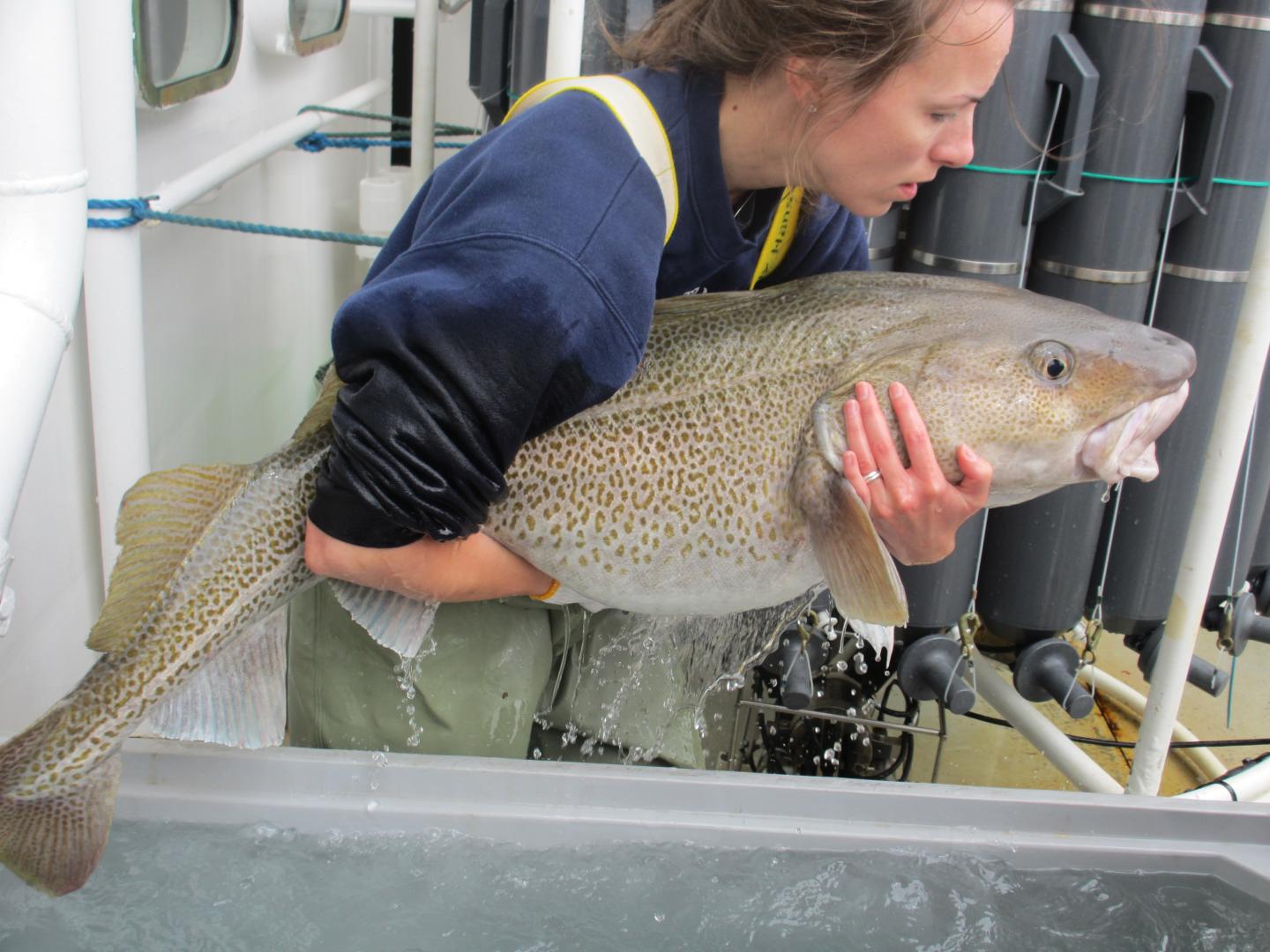
This is Dr. Rowe with a large cod to be tagged and released in Bonavista Corridor. Once an icon of overfishing, mismanagement, and stock decline, the northern Atlantic cod is showing signs of recovery according to new research published today in the Canadian Journal of Fisheries and Aquatic Sciences.
This research, led by Dr. George Rose, tracks what is arguably the most important comeback of any fish stock worldwide. Studying the great northern Atlantic cod stock complex off Newfoundland and Labrador, once considered among the largest cod stocks in the world before its disastrous decline in the 1990s, Dr. Rose documents the stock's rebound over the past decade from tens of thousands to several hundred thousand tonnes and growing.
According to the study, this comeback from commercial extinction has followed three distinct steps:
- 1. After a decade and a half moratorium on fishing, improved environmental factors resulted in stock rebuilding in the southern Bonavista Corridor spawning-migration route accompanied by increases in size structure and fish condition.
2. Two more northerly routes became populated with a wide size structure of fish.
3. Generation of strong recruitment from all three regions. The stock is positioned for this third and final step.
Dr. Rose credits many equally important yet diversified factors in the continued rebuilding of this stock, "The important take-away from this study is that with favourable environmental conditions, in this case the increase in capelin as a key food for this stock, and a severe reduction of fishing, even the most decimated fish stocks have the potential to recover." Stressing the importance of responsible management, Dr. Rose continues, "Without a doubt, maintaining low removals of this stock over the past decades has been essential to recovery. While the timing of a full recovery remains uncertain, continued protection from excessive fishing remains essential to achieving that outcome".
While Dr. Rose underscores that neither the full northern cod stock nor the Bonavista Corridor group are fully rebuilt or recovered at this stage, the findings show that the stock is making a strong comeback after nearly two decades of attrition.
"The critical message is that recovery can occur given harvest restraint based on science and management and recognition of the importance of the marine ecosystem, especially with respect to climate and food" says Dr. Rose. "If this stock can recover, there exists the same potential for other depleted stocks worldwide".
Source: Canadian Science Publishing (NRC Research Press)
 Print Article
Print Article Mail to a Friend
Mail to a Friend
